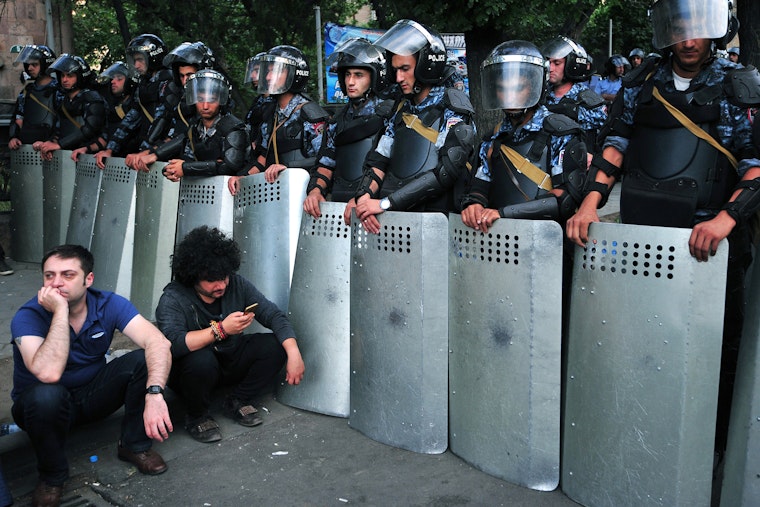Q&A: Defending Europeans’ Right to Protest

Free speech is an indispensable element of a healthy civil society. Recently, the Open Society Human Rights Initiative’s Iva Dobichina spoke with the European Center for Not-for-Profit Law’s Andrea Judit Tóth about how governments in the Western Balkans and Eastern Europe are failing to uphold this fundamental right.
Are government officials in Eastern Europe and the Western Balkans “backsliding” when it comes to the right to protest?
According to research we at the European Center for Not-for-Profit Law conducted with our local partners, the governments of many, but not all, of the countries in the region have been more willing to limit the right to assemble. A couple of countries (Montenegro, for example) have introduced new legal provisions that facilitate the ability of their citizens to exercise this right better. Overall, though, we see a disturbing region-wide trend toward more restrictions.
What methods are these governments using to restrict the right to assembly?
Governments limit the right to assemble by exploiting domestic laws, which sometimes conflict with each other and often create confusion as well as opportunities for abuse. We also found a significant amount of poor behavior on the part of the police. In a number of the countries we surveyed, the police, rather than keeping the peace and safeguarding people’s right to assemble, were directly responsible for violence against protesters.
Can you say more about why these domestic laws can be confusing and how some governments wield uncertainty to restrict assembly?
In most of the countries we examined, we found regulations which were ambiguous. In some cases, there were so many regulations on the books that magistrates and police were able to pick and choose when—and against whom—to enforce them. In a few countries, meanwhile, laws were written in such a way that local authorities have the de facto right to block protests or assemblies.
All of these dynamics create confusion and insecurity, leaving the public unsure about its ability to exercise a basic right. This is why legal reform—bringing domestic laws in line with international standards—is one of our key recommendations.
Say that someone has successfully navigated through these confusing domestic laws; what were they likely to face next?
The police—and the all-too-common gap between the standard the law sets and the way the police actually enforce it. In Armenia, for example, the law states that the police must provide protection at an assembly, so long as the assembly is peaceful. What we found, however, was that the police were not infrequently the ones who were violent, using unprovoked force against assembly participants and responding to minor disturbances with disproportionate force.
Reporters covering an assembly or protest were often targets of police violence as well. Armenia was hardly alone in this respect; we saw police violence directed against protesters over the last several years in Belarus, Bosnia and Herzegovina, and Montenegro, too.
Were there any other tactics police used besides physical coercion?
Yes, but other forms of police misconduct were less obvious. In Moldova, for instance, special police reportedly attended political rallies in plain clothes, and they attempted to bait attendees into quarrels or to otherwise create disturbances.
We have also found examples of police in some assemblies trying to restrict the right to assemble by “overprotecting” participants. This was an issue in Serbia, for example, during an annual LGBTI pride parade, where police limited participation to those who preregistered for the event—a practice which likely decreases turnout significantly.
Police are sometimes reprimanded for this behavior but, in general, police in the Western Balkans and Eastern Europe are not sanctioned for infringing on the right to assemble.
You mentioned legal reform as one of the center’s recommendations. Do you have any police-related advice?
We have seen some positive developments in the region—training officers in assembly management so that they take appropriate measures and develop skills for nonviolent conflict resolution, for example. Another good practice is striving for better dialogue between law enforcement and assembly organizers, including establishing communication channels before the events, especially in cases where there is a possible safety risk; ensuring communication during the assemblies; and even holding debriefing meetings after the assemblies take place.
The European Center for Not-for-Profit Law is a grantee of the Open Society Foundations.


